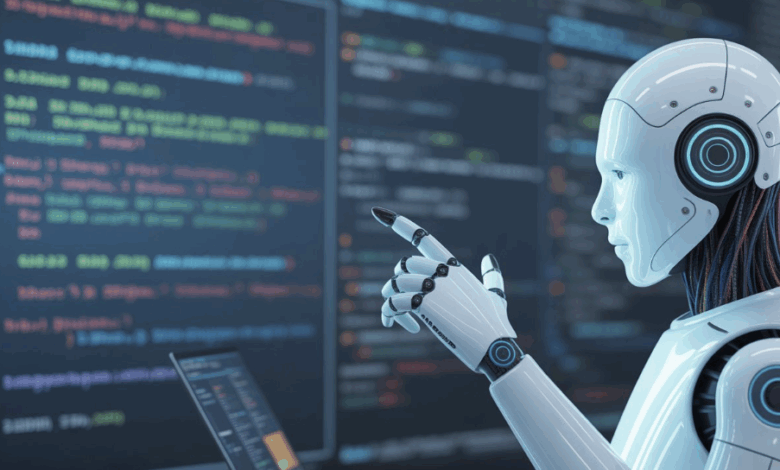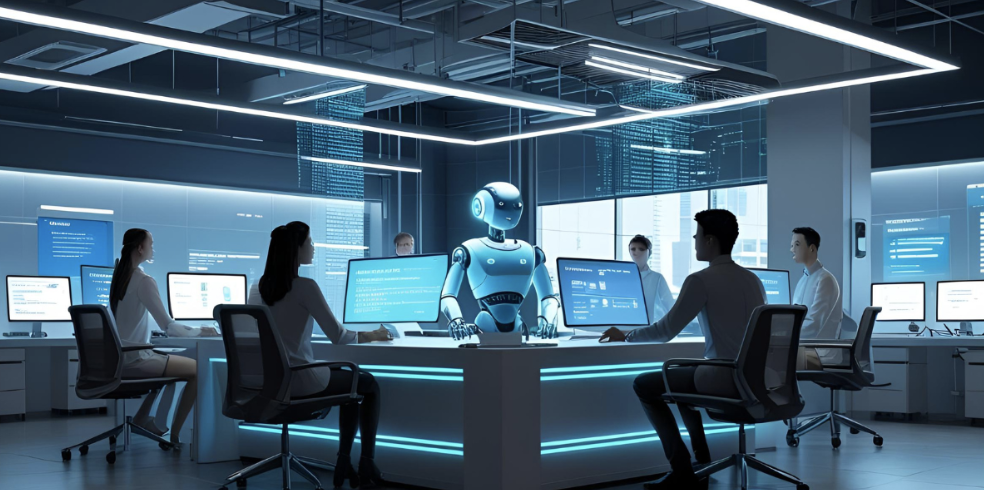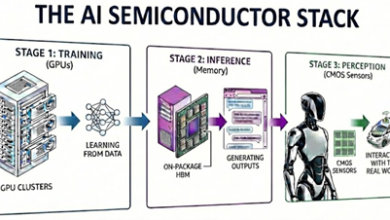
Introduction
The software development market is changing rapidly, but 2025 marks a turning point. The traditional organizational structure of development teams (having front-end, back-end, QA, and DevOps developers) is becoming a relic of the past. The implications of AI code generation on the team structure can already be seen: the increasing use of smaller, more agile teams has already enabled the development of production-quality applications more quickly than ever before. This change is not merely associated with being able to write the code more productively, but how AI-based agents are changing the formation of teams, their roles, and skills recognition.
Artificial intelligence (AI) is changing software development, and the solutions it innovates are set to transform industries. Gartner, Inc. estimates that generative AI (GenAI) will add new roles in software engineering and operations, prompting 80 percent of engineers to reskill by 2027.
This blog is going to discuss how the rise of agentic AI will replace dev teams in 2025, the new skills developers should learn to survive the disruption, and why organizations are rethinking job descriptions. We shall also examine how AI code gen reshapes hiring, and the reasons why the development of AI Agent-based services is becoming mainstream. At the end, you will know what changes are taking place and how to adjust before your team structure becomes outdated.
The Decline of Traditional Roles: not immediately, but continuously
Agentic AIs have moved beyond mere autocompletion in an IDE and are now able to set workflows, think across multiple systems, and perform multi-faceted development without much direct human intervention. Organizations are exploring multi-agent configurations and AI Agent development services that automatically execute tests, suggest fixes, merge changes into staging, and build PR descriptions. The outcome: AI agents are turning into workable team members that are carrying out explicitly different pieces of work.
- The number of roles that only involve writing code would be reduced, and instead, more positions that involve advising and controlling AI tools would be available.
- The old approach of juniors being able to learn through small coding exercises is being outdated due to some of the tasks being handled by AI.
- Skills such as knowledge of system design, good AI queries, and ensuring that AI is safe and accurate to use will be more important than the ability to know the programming syntax in career growth.
Agentic AI as Core Team Members
Against the backdrop of full autocode, agentic AIs can currently take charge of a workflow, comprehend various systems, and perform multi-step development processes without human assistance. There are even organizations that have gone full steam ahead and are using multiple AI agents as a team to automatically do the execution of tests, propose fixes, introduce changes into staging, and write pull request descriptions. A recent Java report revealed that just 12% of industry professionals surveyed are not using AI tools in their work. Concisely, the AI agents even begin to act like real team members, performing distinct and specific tasks, showcasing the AI code generation’s impact on team structure for enhanced productivity.
This is what it means:
- It redefines the process of this type, where the developer writes code and the QA tests it, to a process of this sort where the developer describes what is needed and AI creates, tests, and documents it.
- The role of humans has changed to oversee, review, and merge the work of AI as opposed to being required to write out every line of code.
- Teams will require tools to control AI agents and monitor their work, as well as maintain human involvement in important steps.
The New Hybrid Developer Profile: What to Hire for in 2025
By 2025, organizations will no longer seek good coders; they need to find problem solvers who are knowledgeable about working with AI as one of the team members. This shift is driven by the fact that with AI agents, many of the mechanical coding and testing tasks can now be done by them, freeing them to think and design more, and monitor the quality.
The hybrid developer skills include:
- Understands system architecture
- Knows how to communicate with AI
- Has strong verification skills
- Keeps security and compliance in mind
- Bridges the technical and non-technical teams
Why this matters for hiring in 2025
- Conventional jobs as a junior developer are becoming obsolete since AI would be able to perform repetitive tasks that were earlier performed to teach trainees.
- A hybrid profile makes sure that even a smaller team can provide more through the collaboration of human thinking and the power of AI.
- Hiring someone who can see the big picture and work well with AI reduces the need for large, specialized teams, saving money and speeding up delivery.
Concluding Thoughts
Your existing organization development team includes frontend, backend developers, and QA, which are perfect for coding problems, but become rigid with complex situations. Firms that swiftly redefine roles, embrace governance, and recruit mixed skills will provide quality and quicker solutions in the long run. Having the correct playbook requires a balance between agentic automation and human judgment: The agents will perform, the humans will design the intent, validate the results, and steer the product vision.
If you’re ready to stay competitive, focus on these steps: review repetitive tasks, test agent workflows, update job descriptions with AI skills, and hire AI agent developers to manage them. This will turn your team structure from outdated to a competitive advantage.




